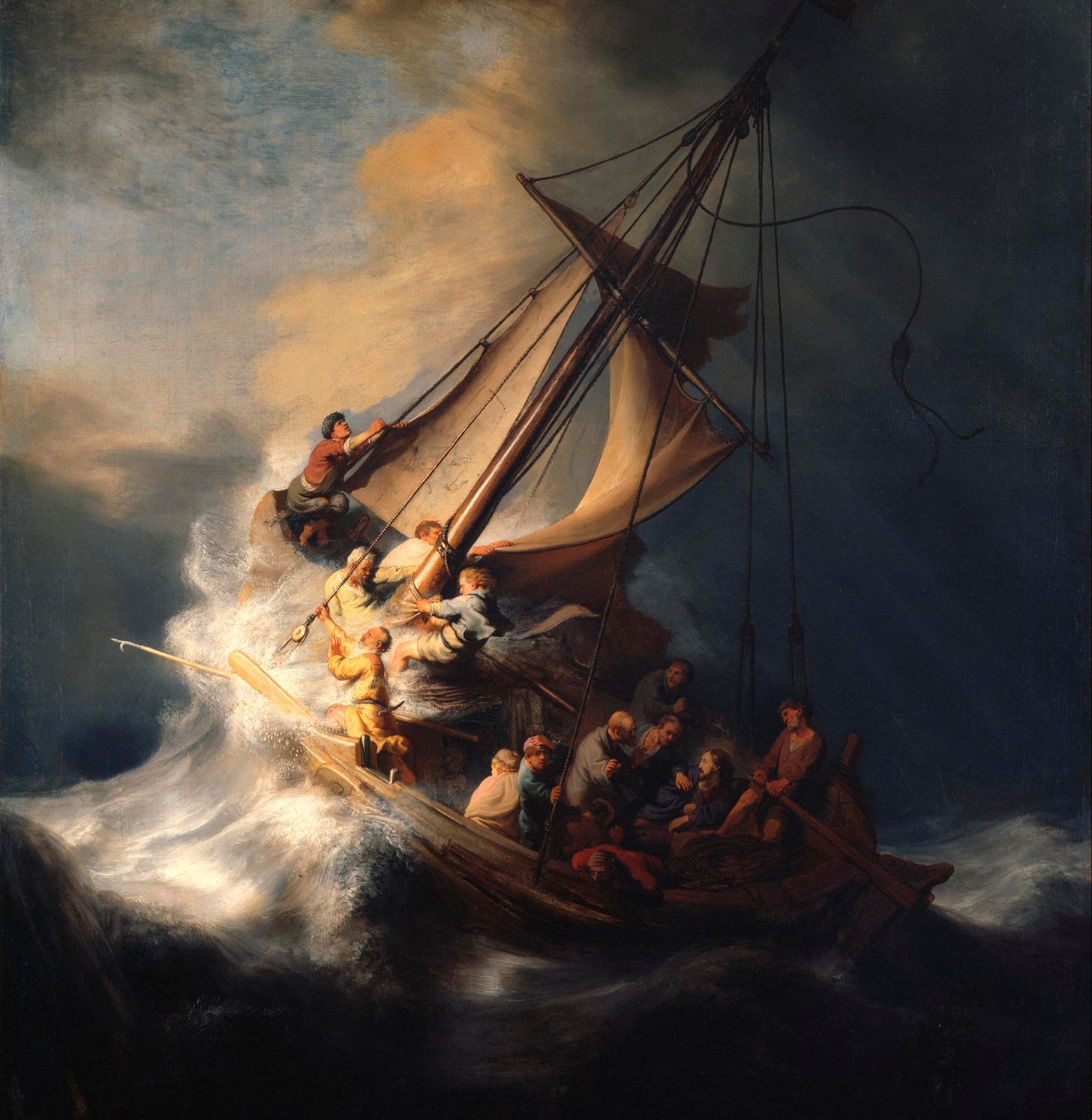Storm on the Sea of Galilee, 1633 by Rembrandt.
How might one captain his intellectual vessel such that he can journey on in confidence of his navigation and that of his fellow seafarers? What is the compass with which we ought to guide our charter for the interconnected islands of truth? Answers have been supplied by merchants of method; many offer solipsistic rationalism, crude empiricism, naïve idealism or base realism. Yet, our judgement – as a compass – is guided to true north by the relation of opposing poles.
Whether reason and/or reality, mind and/or matter, intuitions and/or institutions, one chooses to trust in the reliability of his and/or another's judgement so as to reconcile himself to his environment. To reject it all at the outset, i.e., to begin by refusing to place trust in one's and/or another's ability to attain true knowledge, renders the skeptic adrift amidst a chaotic sea of possibility wherein he will die an epistemic death, drowned beneath the waves of what's and why's having been blown overboard by the incessant winds of circumstance. Inversely, to adopt dogmatic assent to propositions however construed and conceived is to go into this tempest of potentiality in denial of its strength; erelong, the gale steals the sails, the tide takes the crew, and the ship of conviction is capsized.
Thus, neither doubt nor trust are to be cast out, but rolling-hitched – the knot tightening under tension, neither line fraying.




